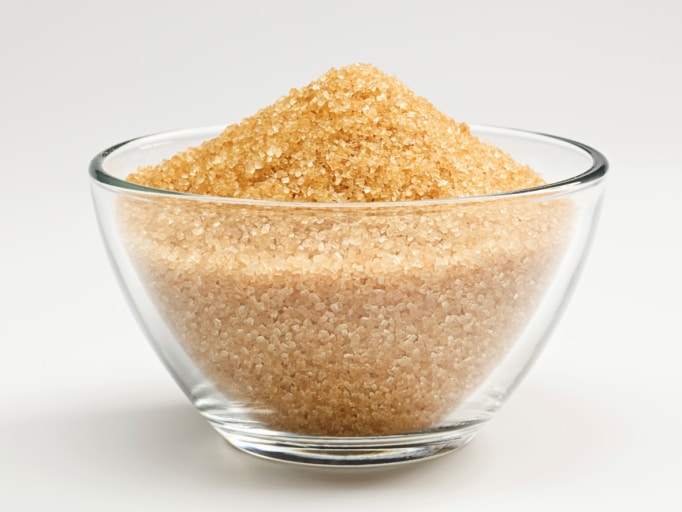A Thorough Overview of the Wellness and Economic Implications of Walking Stick Sugar Handling on Neighborhood Neighborhoods
Cane sugar handling plays a crucial duty fit the economic landscape of neighborhood communities, providing job opportunity and boosting ancillary industries. However, the health ramifications connected with high sugar consumption can not be ignored, as they add to increasing rates of weight problems and diabetes mellitus. This nuanced vibrant welcomes an essential evaluation of how areas can maximize financial gains while addressing the pressing health difficulties they encounter. The expedition of lasting practices and academic campaigns may just hold the key to reconciling these contrasting passions. What methods might communities carry out to attain this equilibrium?
Financial Advantages of Walking Cane Sugar Handling
Cane sugar handling uses substantial financial benefits that extend beyond the instant agricultural industry. The farming and handling of sugarcane create countless job possibilities, from farming to production and distribution. This work generation not just supports local economic climates yet also promotes neighborhood advancement by offering stable income sources for family members.
Furthermore, the sugar market boosts secondary services, including transport, tools supply, and packaging solutions (Cane Sugar Processing). As these sectors grow, they contribute to a more durable financial framework, improving overall community strength. The export potential of refined walking cane sugar further enhances financial benefits, placing regions as affordable players in global markets
Financial investment in modern processing centers can bring about boosted performance and performance, thereby reducing waste and enhancing resource usage. This change not just benefits the local economic climate however likewise sustains sustainability efforts by minimizing ecological effects.
Furthermore, the profits produced from cane sugar handling can be reinvested in regional framework, education and learning, and medical care, advertising holistic neighborhood growth. Overall, the financial benefits of walking cane sugar processing are diverse, providing a structure for withstanding prosperity in agricultural regions.
Wellness Dangers Connected With Sugar Intake
Excessive sugar usage postures significant health and wellness threats that call for significant attention. High intake of sugarcoated, especially from processed drinks and foods, has been connected to numerous health and wellness complications. One of one of the most important concerns is excessive weight, as sugary diet regimens add to an increased calorie consumption without supplying vital nutrients. This extra can result in metabolic problems, including type 2 diabetic issues, which has actually come to be progressively widespread in both youngsters and adults - Cane Sugar Processing.
Furthermore, high sugar consumption is related to heart disease. Raised blood glucose degrees can result in insulin resistance, a precursor to various heart-related problems. In addition, sugar can have destructive impacts on dental wellness, resulting in tooth cavities and gum tissue condition, as bacteria in the mouth thrive on sugar, producing acids that deteriorate tooth enamel.
Furthermore, emerging research study recommends a prospective web link in between high sugar usage and mental health and wellness disorders, such as anxiety and anxiousness. As communities face these health and wellness risks, it becomes essential to advertise understanding and encourage much healthier dietary selections. Addressing sugar usage is vital not just for individual health and wellness yet also for the general well-being of neighborhood communities, emphasizing the requirement for comprehensive public health techniques.
Environmental Influences of Sugar Manufacturing
Regularly ignored in discussions regarding sugar's effects is the significant ecological effect of sugar manufacturing. The growing of sugarcane frequently requires substantial land usage, leading to logging, loss of biodiversity, and disruption of regional communities. The conversion of woodlands and wetlands into sugar vineyards can lead to habitat devastation, threatening countless species and altering environmental balance.
In addition, sugar production is resource-intensive, consuming significant amounts of water for irrigation. This can lead to deficiency of local water resources, detrimentally affecting both agricultural techniques and community accessibility to tidy water. Furthermore, using chemical fertilizers and chemicals in sugarcane farming can add to dirt degradation and water air pollution, as runoff from these chemicals goes into close-by rivers and lakes, affecting water life and human health and wellness.
The environmental impact encompasses the handling stage, where power intake and waste generation more intensify ecological problems. Air air pollution from melting sugarcane areas, in addition to greenhouse gas emissions, contribute to environment adjustment. Because of this, the ecological effects of sugar manufacturing warrant significant factor to consider, advising stakeholders to take on more sustainable methods to reduce these adverse results on neighborhood ecological communities and communities.
Task Production and Community Advancement
The environmental obstacles posed by sugar manufacturing are commonly counterbalanced by its capacity for economic benefits, especially in task development and area development. The walking cane sugar sector offers as a considerable source of work in numerous country locations, supplying work throughout various skill degrees, from farming labor to handling and distribution roles. This employment not just supports private households however additionally adds to the general economic vigor of local neighborhoods.
Moreover, the facility of sugar handling centers stimulates secondary organizations, such as transportation services, devices supply, and maintenance suppliers. As these organizations prosper, they create additional tasks and strengthen neighborhood economic situations. The earnings generated from the sugar sector additionally results in raised tax incomes, which can be reinvested right into neighborhood solutions such as facilities, medical care, and education advancement.
In addition, the sugar industry usually involves in neighborhood development efforts, such as sustaining local schools and health and wellness programs, consequently improving the high quality of life for residents. By fostering solid community ties and promoting financial development, the walking cane sugar processing market plays an important role in uplifting local populaces, making it a necessary element of lasting development approaches in sugar-producing areas.
Balancing Wellness and Economic Growth
In browsing the intricacies of walking cane sugar processing, a vital challenge hinges on balancing health considerations with economic development. The sugar industry considerably adds to regional economic situations by creating work, boosting associated industries, and enhancing tax incomes. Nonetheless, the health and wellness ramifications connected with excessive sugar consumption can bring about chronic illness such as obesity, diabetic issues, and cardiovascular issues, which can concern public wellness systems and reduce workforce efficiency.

In addition, a knockout post regulatory structures can play an essential function in leading market techniques in the direction of more health-conscious and lasting approaches. By fostering partnership in between government bodies, health organizations, and the sugar industry, neighborhoods can browse the dichotomy of wellness and financial development, making certain that the benefits of walking stick sugar handling are equitably shared while focusing on public health and wellness.
Final Thought
Finally, the processing of walking cane sugar provides both substantial financial benefits and significant health risks for local communities. While it cultivates task development and stimulates regional advancement, the involved wellness problems, specifically concerning weight problems and diabetes, require a mindful harmonizing act. By promoting responsible consumption and investing in neighborhood education and lasting techniques, it is possible to optimize economic advantages while lessening adverse wellness impacts, thus ensuring a much healthier future for neighborhood populations.
Furthermore, sugar can have damaging impacts on oral health and wellness, resulting in dental caries and gum tissue disease, as germs in the mouth thrive on sugar, producing acids that wear down tooth enamel.
Addressing sugar consumption find more info is critical not only for individual wellness however additionally for the total well-being of regional communities, highlighting the requirement for comprehensive public health approaches.
Frequently neglected in conversations about sugar's effects is the substantial ecological influence of sugar production. The health and wellness ramifications associated with extreme sugar consumption can lead to persistent illness such as excessive weight, diabetes, and cardiovascular issues, which can problem public health and wellness systems and decrease workforce productivity.

Comments on “Reliable Cane Sugar Processing: Taking Full Advantage Of Return and Purity”